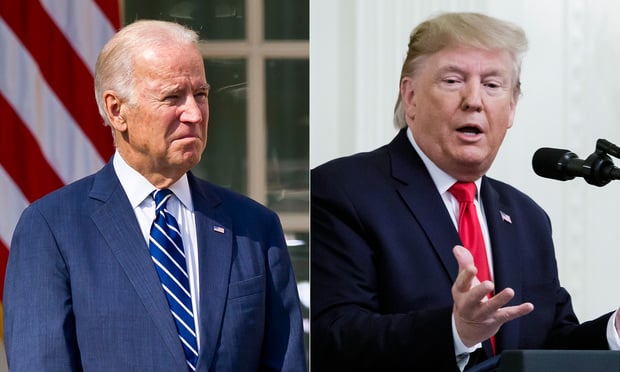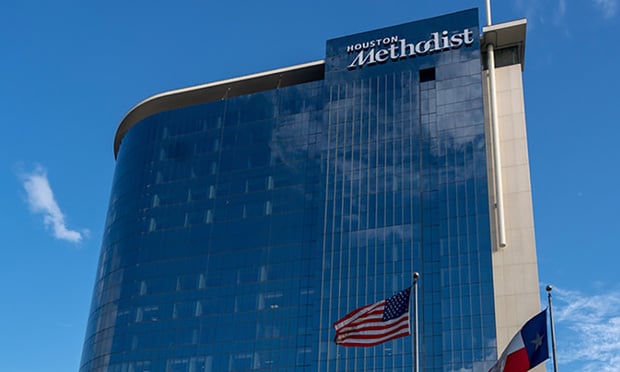 Byextending the time frame to sign up for COBRA coverage, people haveat least 120 days to decide whether they want to elect COBRA, andpossibly longer depending on when they lost their jobs. (Photo:Shutterstock)
Byextending the time frame to sign up for COBRA coverage, people haveat least 120 days to decide whether they want to elect COBRA, andpossibly longer depending on when they lost their jobs. (Photo:Shutterstock)
People who've been laid off or furloughed from their jobs nowhave significantly more time to decide whether to hang on to theiremployer-sponsored health insurance, according to a recent federalrule.
|Under the federal law known as COBRA, people who lose their job-based coveragebecause of a layoff or a reduction in their hours generally have 60days to decide whether to continue their health insurance. Butunder the new rule, that clock doesn't start ticking until the end ofthe COVID-19 "outbreak period," which started March 1 and continuesfor 60 days after the COVID-19 national emergency ends. That enddate hasn't been determined yet.
|Related: 4 ways to get ahead of the COBRA subsidycurve
|By extending the time frame to sign up for COBRA coverage,people have at least 120 days to decide whether they want to electCOBRA, and possibly longer depending on when they lost theirjobs.
|Take the example of someone who was laid off in April, andimagine that the national emergency ends Aug. 31. Sixty days afterthat date takes the person to the end of October. Then the regular60-day COBRA election period would start after that. So, under thisexample, someone whose employer coverage ended at the beginning ofMay could have until the end of December to make a decision aboutwhether to sign up for COBRA, with coverage retroactive to thebeginning of May.
|Some health policy experts question the usefulness of thechange, given how expensive COBRA coverage can be for consumers,and how limited its reach: It isn't an option for people who areuninsured or self-employed or who work for small companies.
|"For ideological reasons, this administration can't do anythingto expand on the Affordable Care Act's safety net," said SabrinaCorlette, a research professor at Georgetown University's Center onHealth Insurance Reforms. "So they're using these other vehicles.But it's really a fig leaf. It doesn't do much to actually helppeople."
|What does this rule change mean for workers? If you have lostyour job, here are some things to consider.
|Playing a waiting game
Under the new rule, workers can keep their COBRA options openfar longer than before. It's always been the case that people couldtake a wait-and-see approach to signing up for COBRA during thefirst 60 days after losing their coverage. If they needed careduring that time, they could elect COBRA, pay the back premiums andcontinue their coverage. But if they didn't need care during thattime, they could save a chunk of money on premiums before optingfor other coverage to kick in after the 60-day period.
|Now, people have even more time to wait and see. Under the rule,once the administration declares the national emergency over,laid-off workers would get 120 days to decide whether to purchasetheir job-based insurance — 60 days under the new rule and theregular 60 days allowed as part of the COBRA law.
|"It becomes a long-term unpaid insurance policy," said JasonLevitis, a nonresident fellow at the Center for Health Policy atthe Brookings Institution. "There's no reason to enroll untilsomething bad happens."
|This is not without risk, consumer advocates point out. Someonewho has a serious medical emergency — a car accident or a stroke —might not be able to process their COBRA paperwork before they needmedical care.
|Waiting too long could also affect people's ability to sign upfor other coverage. When people lose job-based coverage, ittriggers a special enrollment period that allows them to sign upfor new coverage on their state health insurance marketplace for upto 60 days afterward.
|"You could miss your opportunity to enroll in the [insurance]exchange" created under the Affordable Care Act, said Katy Johnson,senior counsel for health policy at the American Benefits Council,an employer advocacy group.
|Don't count on the boss to clue you in
Employers are not mandated to tell people promptly about theireligibility for COBRA. The same federal rule that gives workersmore time to sign up for COBRA also pushes back the notificationrequirements for employers.
|"Once an employer lays you off, they don't have to notify youthat you're eligible for COBRA until after the emergency period,"said Karen Pollitz, a senior fellow at KFF, the Kaiser FamilyFoundation. (KHN is an editorially independent program of thefoundation.)
|For many employers, especially large ones that outsource theirbenefits administration, notifications are routine and arecontinuing despite the federal change, said Alan Silver, a seniordirector at benefits consultant Willis Towers Watson. However, forsmaller companies with fewer than 200 workers, getting theinformation out might be an issue, Silver said.
|Costs can be jaw-dropping
Opting for COBRA is expensive because workers have to pay boththeir portion of the premium and their employer's share, plus a 2%administrative fee. A 48-year-old paid $599 a month on average forindividual COBRA coverage last year, according to a KFFanalysis.
|In addition, if people elect COBRA several months after losingtheir coverage, they could be on the hook for thousands of dollarsin back premiums.
|The upside for former employees is that sticking with theirprevious employer's plan means they don't have to start fromscratch paying down a new deductible on a new plan. Nor do theyhave to find new doctors, as often happens when people switchhealth plans and provider networks change.
|Ten percent of workers laid off or furloughed because of thecoronavirus pandemic reported they had COBRA coverage, according toa survey conducted last spring by the Commonwealth Fund.
|The COBRA extension is available only to people who worked atfirms with 20 or more employees and had job-sponsored coveragebefore being laid off or furloughed. If the company goes out ofbusiness, there's no health insurance to continue to buy.
|Might hospitals step in to pay premiums?
Employers are typically not big fans of the program. Workers whoelect COBRA are typically older and sicker than others withemployer coverage, the KFF analysis found. They may have seriousmedical conditions that make them expensive to cover and raiseemployer costs.
|Some policy experts are concerned that giving people more timeto sign up for COBRA leaves the door open for hospitals or otherproviders to offer to pay sick patients' back premiums in order toincrease their own payment above what they'd receive if someonewere on Medicaid or uninsured. Doing so could be a boon for somepatients but raise health care costs for employers, saidChristopher Condeluci, a health care lawyer who does legal andpolicy work around the Affordable Care Act and ERISA issues.
|"Employers are worried," said Pollitz. After getting laid off,"what if you're uninsured and you wind up in the hospital sixmonths in, and then the hospital social worker learns you'reeligible for COBRA and offers to pay your premium?"
|KHN (Kaiser HealthNews) is a nonprofit news service covering health issues. It is aneditorially independent program of KFF (Kaiser Family Foundation),which is not affiliated with Kaiser Permanente.
|Read more:
Complete your profile to continue reading and get FREE access to BenefitsPRO, part of your ALM digital membership.
Your access to unlimited BenefitsPRO content isn’t changing.
Once you are an ALM digital member, you’ll receive:
- Critical BenefitsPRO information including cutting edge post-reform success strategies, access to educational webcasts and videos, resources from industry leaders, and informative Newsletters.
- Exclusive discounts on ALM, BenefitsPRO magazine and BenefitsPRO.com events
- Access to other award-winning ALM websites including ThinkAdvisor.com and Law.com
Already have an account? Sign In
© 2024 ALM Global, LLC, All Rights Reserved. Request academic re-use from www.copyright.com. All other uses, submit a request to [email protected]. For more information visit Asset & Logo Licensing.








